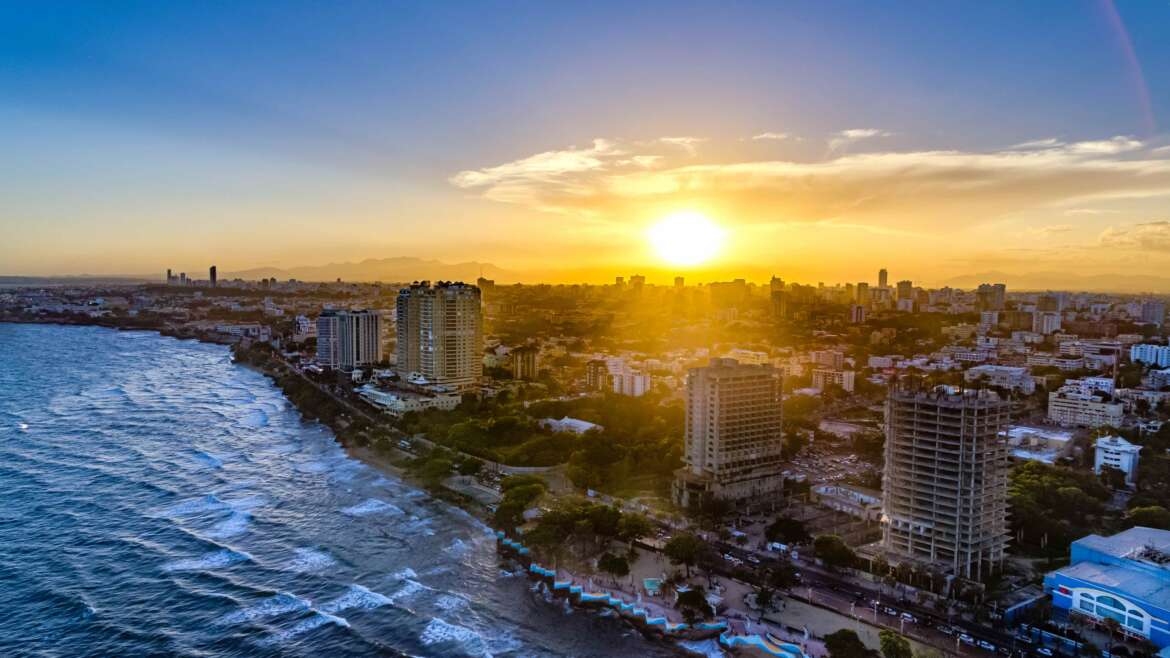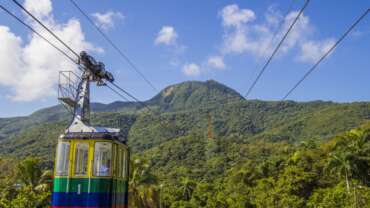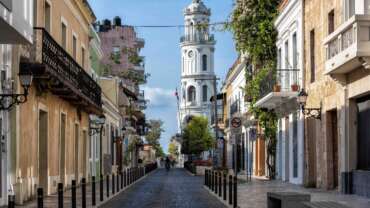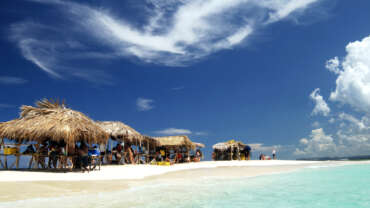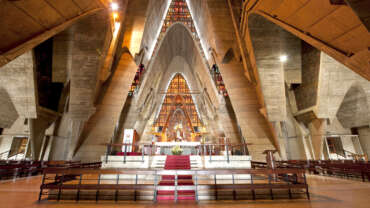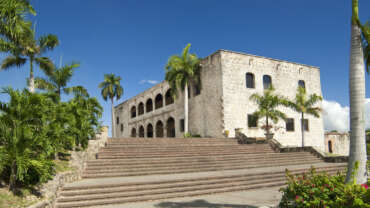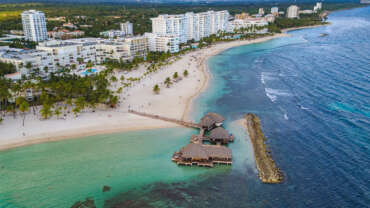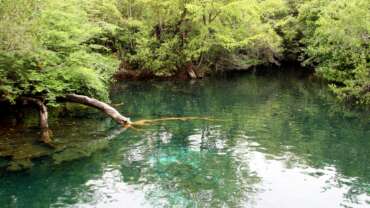Experiences in Dominican Republic
GETTING MARRIED
With its romantic scenery of uninterrupted white sand beaches, in addition to a plethora of resort offerings on multiple coastlines, the Dominican Republic is a popular pick for destination weddings. Hotels excel at providing wedding packages and services–including help with marriage certificates, hiring event planners and photographers, booking spa treatments, a personalized wedding cake, catering, music, and flower arrangements, among other details, leaving the bride and groom to focus on enjoying the journey.
NATIONAL PARKS + PROTECTED AREAS
The Dominican Republic’s diverse topography and varying climates combine to create the perfect environment for over 6,000 species of thriving flora and fauna, including a high number of endemic species. In Bayahíbe, Cotubanamá National Park stretches from land—where you can spot the national, endemic Bayahíbe Rose—to the marine jewels of Saona and Catalina islands offshore, teeming with marine life. The largest of all national parks, and part of the DR’s UNESCO Biosphere Reserve, Jaragua National Park includes beach, lagoons, dry forests and cays. Nearby, the Sierra de Bahoruco is the only cloud forest in the Caribbean. Among the most visited parks in the country is also its most stunning: Los Haitises National Park, toured mainly by boat to view its towering rock mounts rising out of the water. In one of the most remote, pristine areas of the country, Valle Nuevo National Park astounds with its dense pine tree forests and frosty mornings.
Whether for hiking, bird watching, or on flora expeditions, the DR’s protected areas should feature on your vacation to do list.
MUSIC
Dominicans are renowned for their dancing talents–you will spot them spontaneously twirling at the park, on their house veranda, or pretty much anywhere they hear their music. The DR’s sounds and instruments are influenced by West African, Spanish, and European roots. Two principal genres dominate and are synonymous with the Dominican Republic, here and around the world: merengue, and bachata. But there’s also son and a multitude of folkloric dance and music. Wherever you end up in the Dominican Republic, experiencing our music and our rhythms is as easy as stepping outside.
MERENGUE
Merengue is the national music and dance of the Dominican Republic. In 2016, UNESCO proclaimed merengue as a Masterpiece of the Oral and Intangible Cultural Heritage of Humanity. Any Dominican will tell you that merengue is part and parcel of every Dominican’s essence. Its lyrics share the everyday life stories, and its instruments reflect the DR’s triple identity: the güira comes from the Taino–a long metal cylinder with holes, with a brush to run it up and down the cylinder–the tambora or drum from Africa, and the accordion from Spain.
Today’s merengue musicians are world renowned, including Joseíto Mateo, Juan Luis Guerra, Johnny Ventura, Milly Quezada, Wilfrido Vargas, Fernando Villalona, Los Hermanos Rosario, and Eddy Herrera, among others.
BACHATA
Bachata has quickly gained popularity in the DR and abroad. Originating as a string bolero, this slow, sensual music and dance was initially considered the music of the lower classes. It grew mainstream, however, and reached higher levels of sophistication in music and lyrics, thanks to Dominican celebrities like Juan Luis Guerra, and Víctor Víctor.
Among bachata’s earliest creators is José Manuel Calderón from the 1960s. Later came the singers Rafael Encarnación and Luis Segura, who popularized bachata among the masses, followed by Luis Vargas and Anthony Santos, who brought a new language to the rhythm. In the 1990s, the musical group Aventura, led by Brooklyn-born Dominican Romeo Santos, created a bachata fused with other musical styles, modernizing the genre and spreading it internationally.
SON
Son appeared around the northern cities of Puerto Plata and Montecristi between 1870 and 1890. A mix of Latin and African elements–one theory says that it derives from bolero–its creation is attributed to Cuban musician and composer Miguel Matamoros. Popular Dominican son artists include Sonia Cabral, known as the queen of son, El Grupo Maniel, Grupo Bonyé–who perform live every Sunday evening in the Colonial City of Santo Domingo–and Los Hermanos Heredia.
FOLKLORIC MUSIC
Richly influenced by the DR’s African heritage, folkloric music and dance are as alive as any of the DR’s modern beats. These traditional sounds can be experienced in various regions, or during carnival month in February.
In Santo Domingo, the Congos of Villa Mella–proclaimed a UNESCO Masterpiece of Intangible and Oral Heritage of Humanity in 2001–are known for their West African inspired spiritual chants and instruments, which include two double-headed drums, an idiophone, and maracas. The southeast of the country is home to the Afro-British influenced music and dance of the Guloyas and their Cocolo Dance Theater, also a UNESCO protected group, while the southwest is home to the Sarandunga music and dance of Baní, based on African drums, and performed as a religious celebration.
When in Santo Domingo, catch a weekly free performance by the Ministry of Tourism’s Folkloric Ballet every Friday and Saturday evening in the Colonial City, to glimpse the DR’s folkloric rhythms and dance, placed in historical context.
POPULAR MUSIC
Aside from the ever-popular Dominican genres of merengue, bachata, and son, are contemporary sounds you will hear around the DR. These include Dominican jazz, rock, and dembow, a form of Dominican dancehall music, among others.
BASEBALL
Baseball is the Dominican Republic’s favorite sport. For Dominicans, “pelota”–as we call it here–is more than a sport. It’s a limitless passion, a love for country and unity. For the young generation, baseball also symbolizes a dream and hope for a better future–with the possibility of becoming one of the world’s legendary Dominican baseball players. After all, it worked for Sammy Sosa, Pedro Martínez, David Ortiz, Robinson Canó, José Reyes, Juan Marichal and Bartolo Colón, among numerous others.
Aside from tracking their favorite players during the Major League Baseball (MLB) games, each Dominican has a favorite team that he or she cheers on during the Dominican baseball season. Baseball season in the DR runs from mid-October through late January, featuring six teams competing at major professional baseball stadiums around the country. If you are visiting during these months, add this unique experience to your list–going to a Dominican “juego de pelota” is about the game, but it’s also a lively party.
CENOTES + SPRINGS
Tucked inside lush rainforests, cenotes and spring-fed pools are breathtaking in color—sparkling, clear turquoise and emerald—and offer refreshing, cold swims in nature. In Punta Cana, look out for Scape Park’s Hoyo Azul—or blue hole—or the Ojos Indígenas Ecological Reserve, both offering easy rainforest hikes to reach the cenotes. Perhaps the most famous DR springs of all are the 27 Charcos de Damajagua in Puerto Plata, where you can leap or slide to your heart’s content into deep azure pools. You’ll find plenty more fresh water escapes, including Cabarete’s El Choco National Park, and along Barahona’s hiking trail toward Cueva de la Virgen.
With so many lush hills, you’re bound to find your favorite natural pool, available to enjoy any time of the year.
WATERFALLS
Abundant rivers lead to numerous waterfalls, some of which offer adrenaline-packed hiking adventures. Puerto Plata’s 27 Charcos de Damajagua waterfall park presents a series of cascades to conquer with jumps or slides, while Salto El Limón waterfall in Samaná is ranked among the highest, tumbling down 30 meters (100 feet). The heart of the DR, replete with mountains, is home to numerous freshwater cascades, and visiting them can easily fill your daily calendar, from Salto Baiguate to Salto Jimenoa I and II in Jarabacoa. Smaller cascades can be found tucked away in the hills all around the country, ready to be discovered.
Waterfall excursions are available from various points of the country—you could even design your trip according to the ones you wish to experience.
GEM HUNTING
The Dominican Republic is known for two major precious and semi-precious stones you will see polished and sold in jewelry stores around the country: amber and larimar. Dominican amber—which was first offered to Columbus on his arrival in 1492, and later made famous in Jurassic Park—is mined on the north coast, in the hills of La Cumbre, the only place where blue amber is found.
The hills of Bahoruco produce the larimar stone—a blue-colored, semi-precious stone found only in the southwest of the DR and nowhere else in the world. Hiking excursions to mining regions are offered year round. Explore the grounds while the men are at work, as they enter and exit the underground with raw stones they’ve just extracted. While on tour, you can purchase unpolished stones directly from one of the recommended miners.
For more history, visit the amber museums in Santo Domingo, Puerto Plata, Punta Cana, and La Romana.
WILDLIFE SPOTTING
If you love critters, then you’ll be happy to find a wide variety in the DR, across coastal and mountainous climates. Hop on whale-watching boat tours from Samaná during the mating season, and watch the world’s largest mammals mating and birthing in our bay. In the north, watch manatees surface at Estero Hondo Marine Reserve, or dolphins flipping in the bay waters of Los Haitises National Park. Birds are a big part of wildlife, with 32 endemic species—look out for the Ridgway’s Hawk—that you can spot on hiking excursions in national parks, but also in the hills, valleys, and on offshore islands of the DR. The Dominican southwest is for reptiles, ranging from the American crocodiles teeming inside Lago Enriquillo, and endangered iguanas that inhabit this cacti-lined, desert-like region.
Whether you’re hiking, kayaking, or boating, excursions abound to get you close to the DR’s wildlife world.
PLANTATION TRAILS
Tucked in the Dominican Republic’s fertile hills are vast agricultural plantations. Take a tour from Punta Cana to the hills of the La Altagracia province, where you will taste chocolate and learn about Dominican coffee from bean to cup. Similar opportunities exist in Samaná’s El Limón plantations. In Puerto Plata’s hills, women-run cacao plantations such as Chocal offer full-day immersion into the world of chocolate, from hiking amid cacao trees to processing chocolate into bars. In the southwest, fruit trees help produce marmalade from mango, passion fruit, and guava.
Hiking our campo will almost always lead to sweet discoveries.



